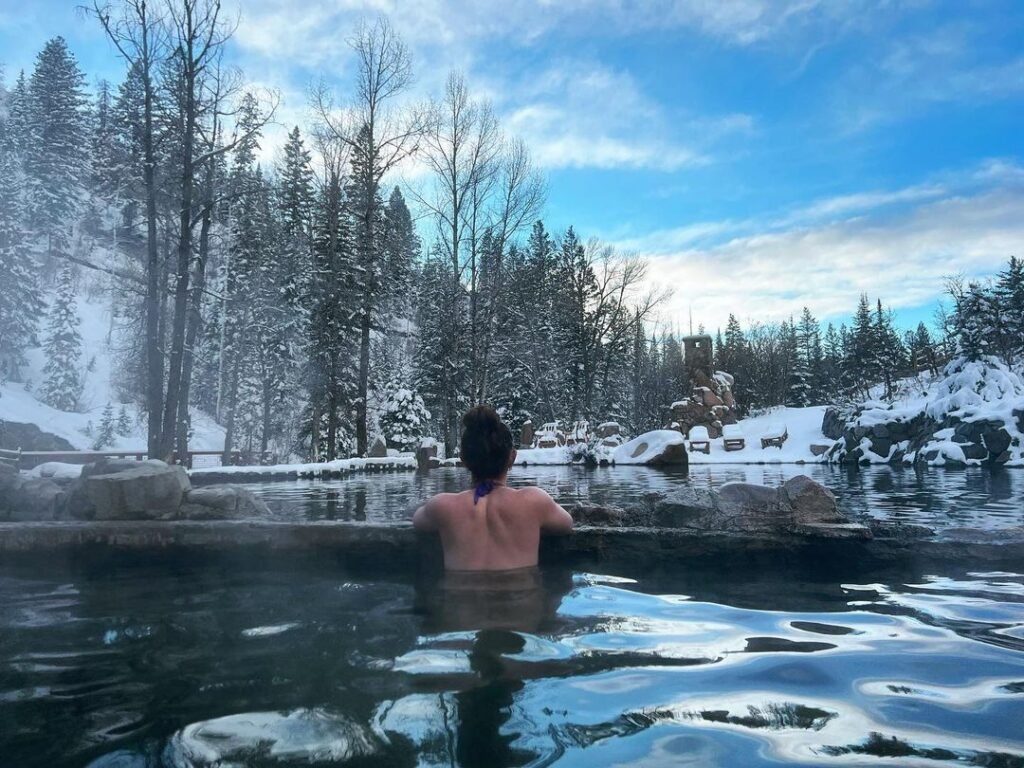Table of Contents
Can You Get an Infection from Hot Springs?
What are the Risks Associated with Hot Springs?
Hot springs are natural geothermal pools that are known for their therapeutic benefits and relaxation properties. However, there are potential risks and dangers associated with soaking in hot springs, especially if certain precautions are not taken.
Hot springs are bodies of water that are heated by underground geothermal activity. They occur naturally in various parts of the world and have become popular attractions for tourists and locals alike. The water in hot springs is heated to high temperatures due to volcanic activity, and it is believed to contain minerals that have potential health benefits.
QUICK ANSWER
Yes. While hot springs are often associated with relaxation and healing, they can also harbor certain bacteria that can pose a risk to human health. Thermotolerant enteric bacteria are known to thrive in hot spring environments. These bacteria are commonly found in the gastrointestinal tract and can cause gastrointestinal illnesses if ingested.
Potential Bacteria in Hot Springs
While hot springs are often associated with relaxation and healing, they can also harbor certain bacteria that can pose a risk to human health. The high water temperature of hot springs can make it difficult for some bacteria to survive, but thermotolerant enteric bacteria are known to thrive in hot spring environments. These bacteria are commonly found in the gastrointestinal tract and can cause gastrointestinal illnesses if ingested.
Hot Spring Water Quality
The quality of hot spring water can vary depending on the location and the natural mineral composition of the spring. In some cases, hot spring water can be contaminated with harmful bacteria or other microorganisms. It is important to be aware of the potential risks and to take necessary precautions when soaking in hot springs.
Are Hot Springs Safe to Soak In? Can You Get an Infection from Hot Springs?

Soaking in hot springs can be a relaxing and enjoyable experience, but it is important to be aware of the potential risks and side effects associated with hot spring use.
Potential Risks and Side Effects
The high temperature of hot spring water can have adverse effects on the body if proper precautions are not taken. Prolonged exposure to hot water can lead to dehydration, fainting, or heat exhaustion. It is important to take breaks, stay hydrated, and avoid staying in the hot water for too long to prevent these side effects.
High Temperature Effects on the Body
When the body is submerged in hot water, the high temperature can cause blood vessels to dilate, increasing blood flow to the skin’s surface. This can result in a drop in blood pressure, which can be dangerous, especially for individuals with underlying medical conditions. It is advisable to consult a healthcare professional before soaking in hot springs, especially if you have any pre-existing health conditions.
Centers for Disease Control (CDC) Guidelines
The Centers for Disease Control and Prevention (CDC) provides guidelines for the safe use of recreational water, including hot springs. These guidelines aim to minimize the risk of infections and illnesses associated with waterborne pathogens. It is important to follow these guidelines and practice good hygiene when visiting hot springs.
Can You Contract Infections from Hot Spring Water?

While the risk of contracting an infection from hot spring water is relatively low, it is still possible under certain circumstances. Understanding the potential dangers and taking necessary precautions can help minimize the risk of infections.
Understanding Contaminated Water
If hot spring water is contaminated with harmful bacteria or other microorganisms, there is a possibility of contracting an infection. It is important to note that not all hot springs are contaminated, but it is essential to be cautious, especially when soaking in untreated hot springs.
Naegleria Fowleri and Its Dangers
One of the most well-known dangers associated with hot springs is the presence of the Naegleria fowleri amoeba. This amoeba is commonly found in warm freshwater environments and can enter the body through the nose. If the amoeba reaches the brain, it can cause a rare but serious infection known as primary amebic meningoencephalitis (PAM).
Drinking Contaminated Hot Spring Water
Ingesting hot spring water that is contaminated with harmful bacteria or other pathogens can also lead to gastrointestinal illnesses. It is important to avoid drinking untreated hot spring water and to ensure that any water consumed is properly treated or filtered.
How to Stay Safe When Soaking in Hot Springs
While there are potential risks associated with hot springs, there are also measures that can be taken to minimize these risks and stay safe during the soaking experience.

Guarding Against Potential Infections
One of the most effective ways to guard against infections when soaking in hot springs is to wear nose clips. This can help prevent the entry of bacteria or amoebas through the nose. Additionally, it is advisable to avoid submerging the head underwater and to keep the nose and mouth above the water’s surface.
Minimizing Risks during Hot Spring Visits
When visiting hot springs, it is important to choose reputable and well-maintained facilities. These facilities often test the water regularly to ensure its safety and cleanliness. It is also crucial to follow any posted warnings or guidelines provided by the management.
Importance of Personal Hygiene
Practicing good personal hygiene is essential when visiting hot springs. Showering before and after soaking can help remove any potentially harmful bacteria from the skin. Additionally, it is important to avoid sharing towels or other personal items with others to prevent the spread of infections.
Health Benefits and Precautions of Hot Spring Use
Despite the potential risks, soaking in hot springs can offer various health benefits. It is important to understand these benefits and take necessary precautions to ensure a safe and enjoyable soaking experience.

Recognizing the Benefits of Warm Freshwater Soaks
Warm freshwater soaks can provide relaxation, stress relief, and relief from muscle tension and pain. The heat from hot springs can also promote blood circulation and improve overall well-being. It is important to enjoy these benefits in a safe and responsible manner.
Avoiding Microorganism Exposure
To avoid exposure to harmful microorganisms, it is essential to choose hot springs with clean and well-maintained facilities. The use of water treatment systems, such as chlorination, can help eliminate or reduce the presence of bacteria and other pathogens in the water.
Understanding Primary Amoebic Meningoencephalitis (PAM)
Primary amebic meningoencephalitis (PAM) is a rare but serious infection that can occur as a result of Naegleria fowleri exposure. It is important to be aware of the symptoms of PAM, which include severe headache, fever, nausea, and seizures. Seeking immediate medical attention is crucial if any of these symptoms occur after soaking in hot springs.
